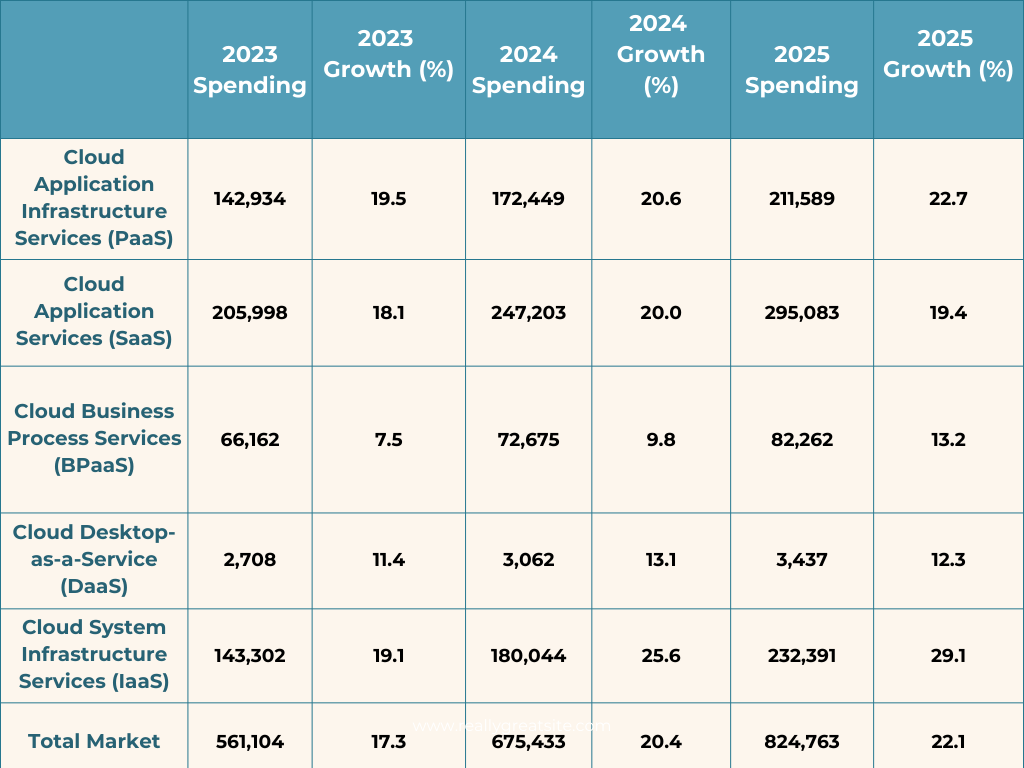
-
Apexlink
Real Estate
-
DLS
General Insurance
-
DMV
Government
-
Entiger
Fintech
-
GIS Mapping
Gas & Petroleum
-
HMS
Employee Benefit
-
HAWA
Government
-
Harley
Community
-
IHG
Hotel & Tourism
-
Sparkseeker
Humane Tech
-
Track Ninja
Sports
-
Response Vision
Disaster Management
- AI/ML Services
- Application Services
- Automation Services
- Cyber Security
- Chatbot Experts
- Data Analysis
- Data Warehouse Services
- Digital Commerce Services
- Digital Transformation
- Infrastructure Service
- Low Code/No Code
- Managed IT Services
- IT Support
- IT Consulting
- IT Outsourcing
- Mobile App Development
- IOS Development
- Android Development
- Cross Platform Development
- Gaming App Development
- Software Development
- System Design & Architecture
- Testing Services
- Web Development
Accelerators
POCs and Products
Enterprises across the globe are now turning to cloud application development at a very fast pace to take their agility and competitiveness to the next level. Cloud technology empowers companies to adapt quickly, cut down their operational costs, enhance their overall performance, and ultimately, provide unparalleled experiences to their customers.
Looking to take a deep dive into the transformative potential of cloud-based application development and its core benefits for modern enterprises? This article is for you.
Why Cloud Application Development is the Need of the Hour
The needs of today’s rapidly changing business environment are significantly different as compared to the needs of businesses a decade ago. As a result, traditional on-premises applications struggle with fulfilling these needs.
Developing cloud applications, on the other hand, enables businesses to expand their digital capabilities while keeping up with industry demands by offering alternatives that are flexible, scalable, and cost-efficient. A 2023 report from Gartner underscores the increasingly critical role cloud adoption plays in digital transformation. The report highlights that cloud spending is expected to cross $675 billion by the end of this year.

Noteworthy Benefits of Cloud App Development
All the numerous advantages cloud application development offers make cloud application development a strategic necessity for companies of all sizes.

Some of the most significant benefits include:
Scalability
The ability of cloud applications to effortlessly scale resources up or down based on demand is what lets them ensure seamless performance even during peak hours of a business. This flexibility enables businesses to reduce costs and optimize resources better.
Cost Efficiency
By turning to a pay-as-you-go model, companies can effortlessly reduce upfront capital expenses and instead shift costs to operational expenditure. The approach is particularly beneficial for startups and businesses that have fluctuating workloads.
Enhanced Collaboration
Cloud applications enable real-time collaboration across geographically dispersed teams. With tools like shared dashboards and communication apps, employees can access data, work on shared projects, and engage in seamless interactions.
Global Reach & Accessibility
Cloud applications remove geographical barriers by allowing users to access resources from any device with an internet connection. This global accessibility helps businesses cater to a wider audience and improves customer experience.
Security & Compliance
There are many cloud providers across the globe that offer industry-standard security measures like encryption, identity management, and compliance with regulations like GDPR. This built-in security infrastructure helps businesses maintain data integrity more effectively.

How Cloud Application Development Contributes to Enhancing Enterprise Agility
One of the main reasons businesses are hugely investing in cloud software development is the agility it brings to operations. Any business owner would agree that the ability to adapt to changes quickly is invaluable in a competitive market. Cloud based application development helps enterprises by:
Speeding Up Deployment
Using CI/CD pipelines, cloud applications facilitate rapid feature releases and ensure companies can meet market demands and adapt to customer feedback promptly.
Assisting in Embracing DevOps & Agile Practices
The cloud environment supports agile and DevOps methodologies, which promote fast-paced development cycles, close collaboration between development and operations, and quick response to changes.
Facilitating Experimentation
Cloud infrastructure allows enterprises to test new technologies and application features with minimal risk. Development teams can conduct A/B testing and roll out new services to a subset of users before scaling.
As per a study by IBM, companies that leverage cloud DevOps practices report about 50% shorter development times. This translates to significant operational advantages in dynamic markets.
Major Cloud-based App Development Solutions
Here are the main classes cloud software development services are categorized into.

Performance Optimization with Cloud Application Development
Performance is critical in delivering a high-quality user experience, and cloud applications offer several mechanisms to maintain and improve performance. Let’s take a look.
Auto-scaling
With auto-scaling, cloud applications dynamically adjust resources in response to real-time demand. This helps to ensure consistent performance without manual intervention.
Content Delivery Networks
CDNs optimize application speed by distributing content to servers closer to the user. In addition to minimizing latency, this enhances loading speeds and the overall user experience.
High Availability & Disaster Recovery
Cloud providers offer high availability and disaster recovery capabilities, reducing downtime and ensuring continuity during unforeseen disruptions. This is especially crucial for industries like finance and healthcare, where data availability is paramount.
Microservices Architecture
Cloud applications often use a microservices architecture which breaks down an application into modular components. This structure enables each component to be developed, tested, and deployed independently, improving flexibility and fault tolerance.
Recent Trends in Cloud App Development

There are several trends that are playing a noteworthy role in effective cloud application development to promote agility, scalability, and performance enhancements for organizations.
Some popular trends in the cloud application development arena are as follows:
Edge Computing
By bringing data processing closer to the data source, edge computing reduces latency and enables real-time insights. This is particularly useful for IoT devices and applications that require low-latency responses.
Quantum Computing
Although still in its nascent stage, quantum computing is set to revolutionize cloud computing by enabling complex calculations that are infeasible with traditional computers.
AI-powered Cloud Security
Advanced Artificial intelligence algorithms are being used to detect and respond to security threats in real-time, enhancing the resilience of cloud applications against cyberattacks.

Other key technologies and approaches shaping cloud app development include serverless computing, containerization, hybrid and multi-cloud strategies, and AI/ML.
Seasia Infotech’s Comprehensive Range of Cloud Application Development Services
Seasia Infotech offers a comprehensive suite of cloud-based application development services designed to empower enterprises at every stage of their cloud journey:
a) Custom Cloud Solutions: Seasia develops cloud-native applications that are scalable, secure, and tailored to meet specific business needs, ensuring optimal performance across diverse environments.
b) Cloud Migration Services: For businesses transitioning from legacy systems, Seasia provides seamless cloud migration services for minimizing disruption and ensuring data integrity.
c) DevOps and Agile Integration: By implementing DevOps and agile methodologies, Seasia streamlines the development and deployment process, helping businesses deliver high-quality applications faster.
d) Managed Cloud Services: With ongoing maintenance and support, Seasia ensures cloud applications remain secure, compliant, and up to date. Our managed services cover everything from troubleshooting to performance optimization.
e) Data Analytics and AI Integration: Seasia leverages data analytics and AI to enhance the functionality of cloud applications, allowing businesses to gain valuable insights, optimize decision-making, and offer personalized user experiences.
Whether you’re exploring how to develop cloud applications for the first time or looking to optimize existing cloud applications, Seasia Infotech provides a roadmap to guide enterprises through each step of the process. From initial consultation to deployment and ongoing management, our team of experts is dedicated to delivering robust and scalable cloud applications.
To Sum It Up
Cloud application development is redefining how enterprises operate by offering a pathway to increased agility, enhanced performance, and sustained growth. With expertise in the latest cloud technologies and a commitment to delivering results, we can be your ideal partner for businesses ready to embark on their cloud journey.








 Blockchain
Blockchain Cloud Computing
Cloud Computing Infrastructure
Services
Infrastructure
Services Metaverse
Metaverse QA
Automation
QA
Automation UI/UX
UI/UX







